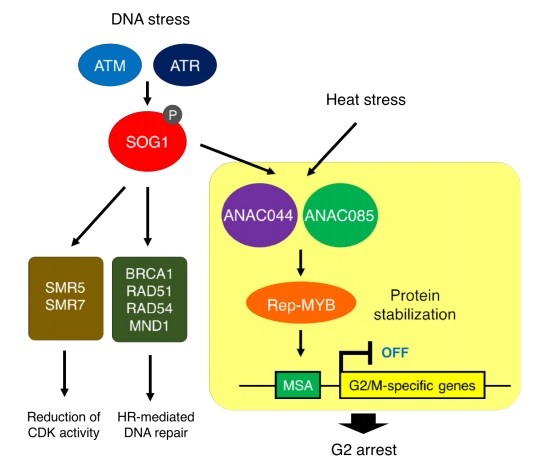
A regulatory module controlling stress-induced cell cycle arrest in Arabidopsis (bioRxiv)
Progression of the cell cycle central to growth, but during stress conditions plants arrest cell cycle progression to enable the organism to survive. SUPPRESSOR OF GAMMA RESPONSE 1 (SOG1), a plant-specific NAC-type transcription factor, regulates the expression of almost all genes induced by double-strand…
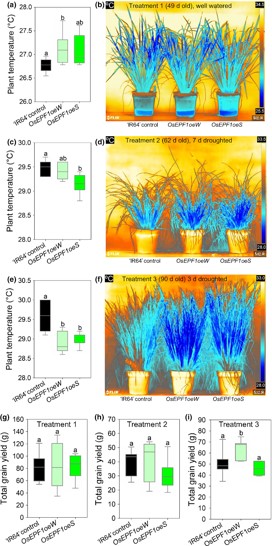
Rice with reduced stomatal density conserves water and has improved drought tolerance under future climate conditions (New Phytologist)
Rice (Oryza sativa) is an important food source in many parts of the world. Unfortunately, this crop requires large amounts of water and it is not tolerant of drought or high temperatures. Here, Caine et al., have engineered the ‘IR64’ rice cultivar so that leaves will have lower stomatal density.…
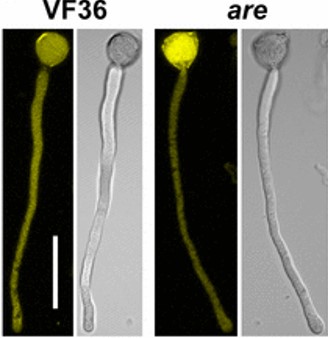
A key role for flavanols in the promotion of pollen success (PNAS) ($)
The reproductive success of angiosperms relies on the fertilization of the female gametophyte (egg sac) by pollen that travels long-distances in the pistil. Previous studies suggest a role for phenylpropanoid-related metabolites (flavonoids and anthocyanins) in controlling pollen growth and fertilization,…
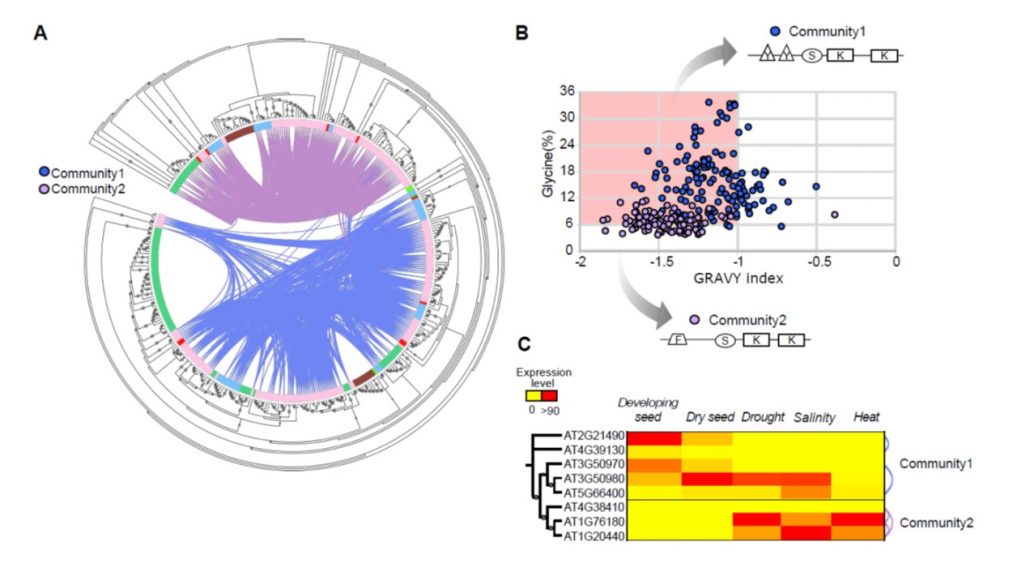
Genomic diversification of LATE EMBRYOGENESIS ABUNDANT (LEA) protein gene families (GBE)
LEA genes were first identified as being highly abundant during seed desiccation (hence their name), but later were also shown to accumulate in other tissues in response to drought stress, and to confer desiccation tolerance in “resurrection plants”. These small proteins are characterized by having…

Alternative Splice Variant Sheds Light on Temperature Acclimation in Algae
Climate change is a potent environmental force that all living organisms must contend with. This is especially true for photosynthetic, microalgae that are forced to acclimate to ever changing water temperatures and coordinate changes in their physiology and growth rates (Singh and Singh, 2015). These…
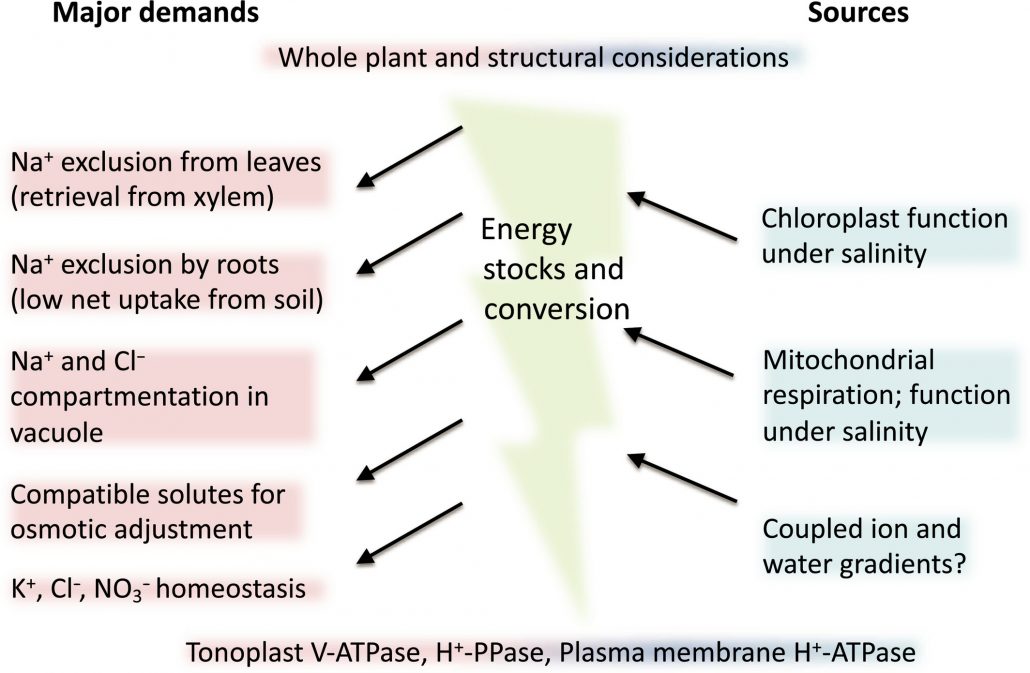
Meeting review: Energy costs of salinity tolerance in crop plants (New Phytol)
Plants use diverse strategies for salt tolerance, including regulated transport of several different ions and production of compatible organic solutes. In April 2018, a workshop was held to discuss strategies for breeding salt tolerance in plants, with a focus on the energy requirements of various strategies.…
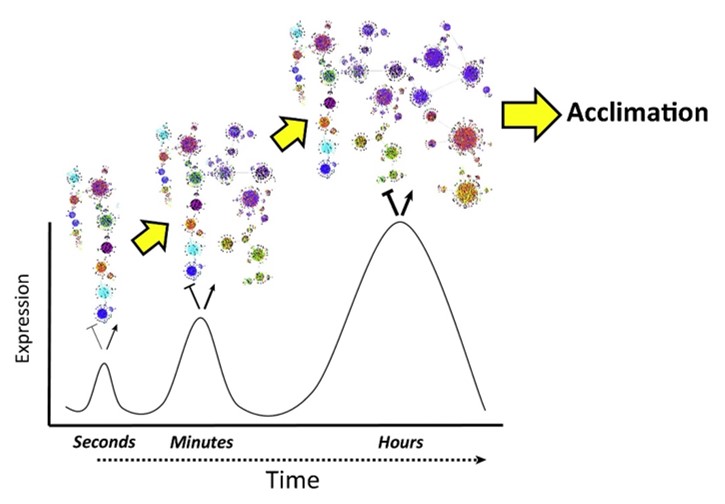
Opinion: Rapid responses to abiotic stress (TIPS)
Several recent studies have demonstrated that plants are able to respond to environmental challenges within minutes, through electrical signals, calcium oscillations, hydraulic changes, metabolites such as glutamate, and reactive oxygen species. Kollist et al. review studies of rapid responses that control…
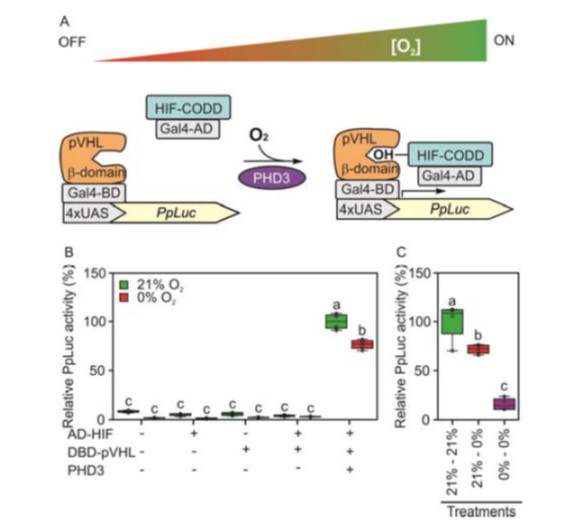
A synthetic oxygen sensing device for plants
Plants can die from a lack of oxygen (hypoxia), which contributes to the devastating losses caused by flooding. Iacopino et al. set out to develop a more specific method for detecting oxygen levels in plants, based on the mammalian Hypoxia Inducible transcription Factor HIF. HIF is hydroxylated by…
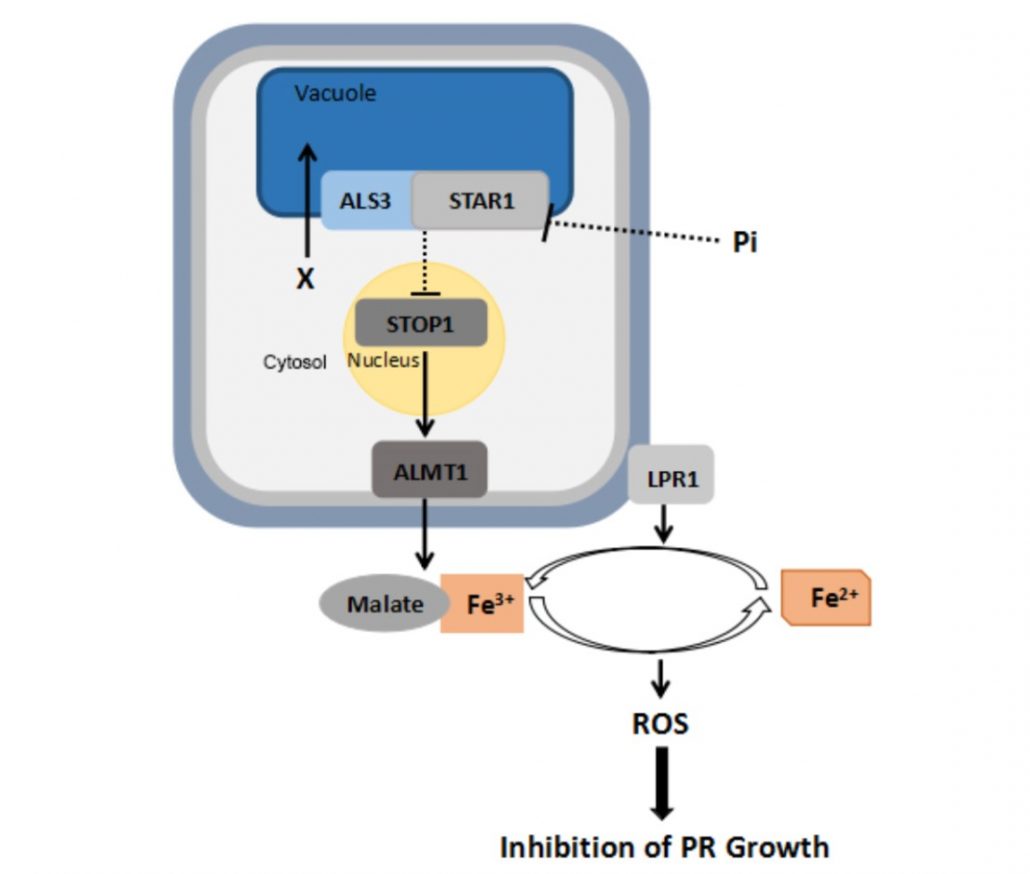
Genetic dissection of Fe-dependent signaling in root developmental responses to phosphate deficiency ($)
Phosphate deficiency leads to arrest of primary root elongation. Previous work has shown that this arrest depends upon Fe, raising the possibility that Fe accumulation in the root apex is the cause of growth arrest. Several genes involved in low Pi response have been identified, including genes encoding…

